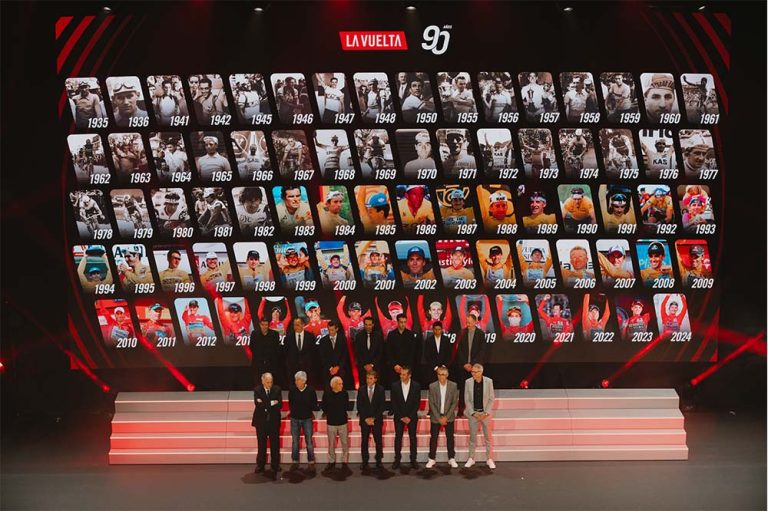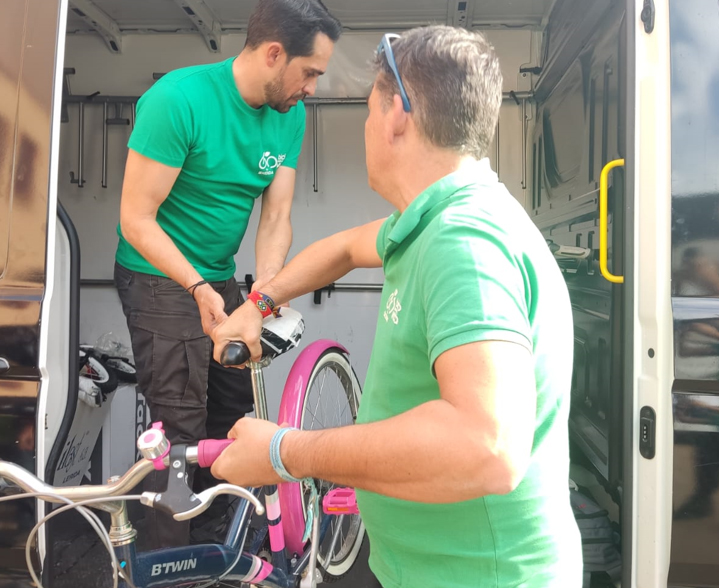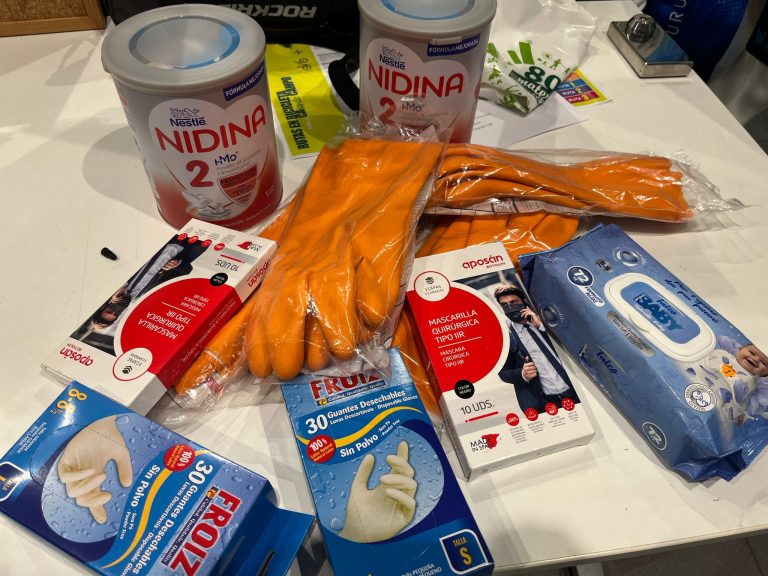Alberto Contador, honoured on ‘Stroke Day’ for “his strength and desire to overcome”
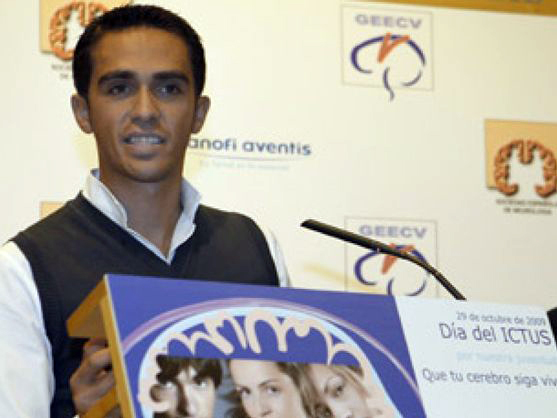
The Spanish cyclist Alberto Contador was honoured on Thursday 29 October for his “strength and desire to overcome” on the occasion of World Stroke Day, an event held at the Círculo de Lectores in Madrid where the Study Group on Cerebrovascular Diseases (GEECV) of the Spanish Society of Neurology presented the 2009 Stroke Awards in the Social and Institutional categories. Very moved, Contador received the award in the Social category: “This is an award that makes me especially excited, but I think it should be given to all the doctors who fight against this disease”.
“You are 20 years old, you play sport at the highest level and you think that this type of illness is not for you. But it happened to me in May 2004, when I was preparing for the Tour de France. I had been having severe headaches for some time, but I was trying to avoid them in any way I could in order to continue and be able to compete in a race in Madrid, in which I went out and on the first day I more or less held on, but on the second, on the way to Navacerrada on the Guadarrama plains, I said into the microphone that I was feeling bad, I stopped and got into the car,” explained Contador.
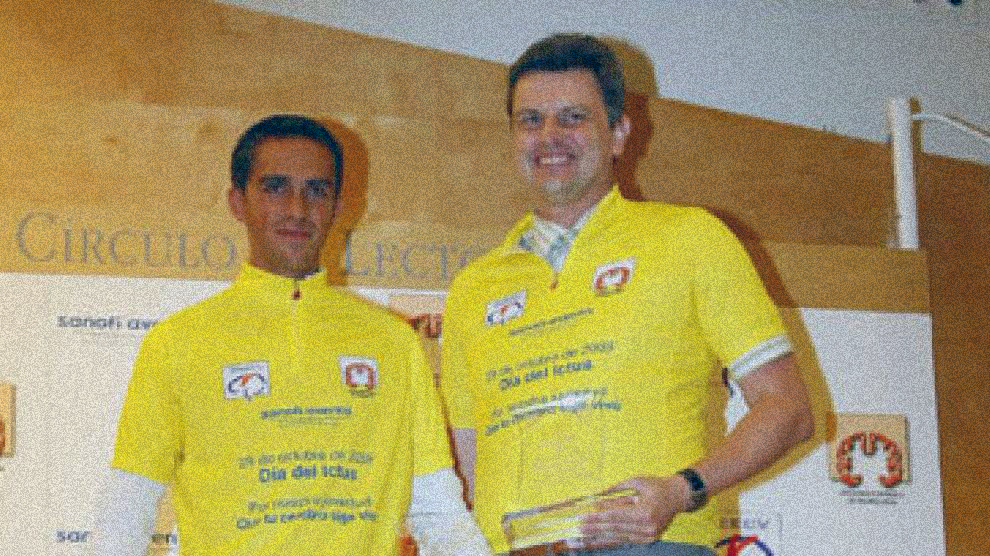
“Two days later I went out for the Vuelta a Asturias, I couldn’t even train because I was still obsessed with meeting my preparation goals, but on the first day I was very cold and when the team started to pull I started to fall behind and I ended up falling. At no time was it thought to be a cerebral ictus and so after 7 or 8 days in the Oviedo Hospital it happened again and I had to go to the Ramón y Cajal hospital as an emergency, where I have to be grateful for the rest of my life to Dr. Luis Manzano and his team, as they detected the cavernoma due to a malformation at birth. I couldn’t think about anything else, the bicycle was completely forgotten,” he added.
“After talking a lot with the doctors, I decided to have the operation, because I knew I wanted to recover and the operation went well. If you ask me what day I won the Tour de France, I can’t tell you, but 27 November, when I knew that everything had gone well, will never be forgotten in my life, nor will the most important sporting victory: although it may seem incredible to you, this was not in the Tour de France; it was when after the rehabilitation I won what was considered the queen stage of the Tour of Australia,” he concluded in his speech.


